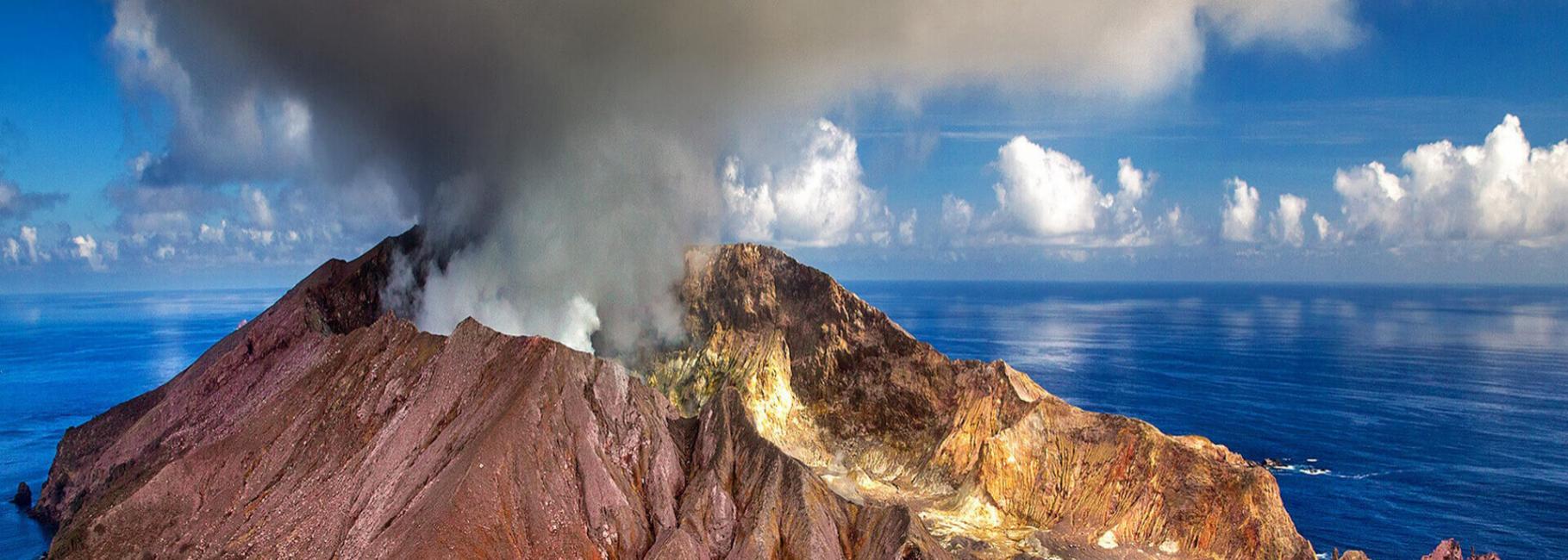Hodder Education - Hazards Student Conference
London, November 2019
We're delighted to announce that we're teaming up with Hodder Education to support the hugely popular Hazards Student Conference 2019, providing exceptional revision opportunities for A' Level geography students!
During the event, which takes place on Friday 29th November in London, students will hear from expert speakers who will cover the very latest developments in this ever-changing field. The event aims to deepen student knowledge and provide topical content that will take exam responses to the next level.
Covering hazards geography from volcanoes, earthquakes and tsunamis to human responses and management, this full-day conference aims to:
- Introduce a huge range of new and relevant case studies that illustrate key concepts, processes and themes across different hazards
- Engage students with cutting-edge academic theory, as leading geographers talk about their research and experiences around the world
- Reinforce and extend students’ understanding of hazards, consolidating what they’ve learnt in lessons and helping to maximise marks in the exams
- Provide each student with a booklet of the day’s notes, which includes links to online resources and further reading
Dates for Manchester and Nottingham also available. Call for details.
![]() Book soon to avoid disappointment!
Book soon to avoid disappointment!
2 days from only £159pp
Price includes:
- 1 night bed & breakfast accommodation
- Executive coach transport from & to school
- Attendance at the Hodder Education Hazards Student Conference 2019
- Group travel insurance
- 1 in 8 free place ratio
Price shown is based on 40 paying passengers departing from selected departure points in November 2019 and is subject to availability.
Meet the speakers...

Professor David Petley
Professor David Petley
Pro-Vice Chancellor and Professor of Geography, University of East Anglia
David has worked extensively on landslide hazards and impacts. Since 2000, he has been leading a series of projects examining potential landslides generated by a large seismic event in Nepal, focused on an area that was directly affected by the 2015 earthquakes.

David Redfern
David Redfern
Former Chief Examiner; experienced teacher and author
David is a co-author of several major Geography textbooks, and has extensive experience of working with both teachers and students.
Conference programme
![]() David Petley: The 2018 Sulawesi Earthquake: a complex disaster caused by secondary hazards.
David Petley: The 2018 Sulawesi Earthquake: a complex disaster caused by secondary hazards.
The 28 September 2018 M=7.5 earthquake that struck Sulawesi in Indonesia was the deadliest seismic event in that country since 2006. Interestingly, most of the losses were not caused by structural failure of buildings, but instead were induced first by a 4 to 7 m high tsunami that struck the coastal region in the vicinity of Palu, and second by three major liquefaction landslides triggered by the earthquake. This presentation will discuss the tectonic background of the earthquake, the possible causes of the tsunami, and the reasons behind the liquefaction landslides. Finally, it will examine the implications of this event for hazard management in Indonesia.
Cameron Dunn: Theory of plate tectonics
The theory of plate tectonics has revolutionised Geographer’s understanding of tectonic processes and hazards since the 1960s. It remains a theory, which continues to evolve and be refined as scientists discover more about Earth’s interior. We will explore ongoing debates about ‘hotspot’ formation, the processes that drive plate motion (ridge push, slab pull, mantle drag), and examine the science of tomography or ‘imaging earth’s interior’. The update will focus on physical processes, often an area of weakness for some students.”
Professor Dave Redfern: The relationship between Place and Hazards
The synoptic links that exist between hazardous events and the places they affect are common features of assessment for A-level Geography. David Redfern will examine the complexity of such connections, with reference to the various models that enable study, and making use of a number of case studies including those occurring in Italy, Japan and New Zealand.
Dr Servel Miller: Multi-Hazards in the Caribbean: Impact, risk assessment and Management
This talk explores why the Caribbean islands are risk from a range of hazards, including; earthquake volcanoes, hurricanes, floods and landslides. These hazards are having a negative impact and therefore it is imperative that effective and innovative strategies are utilised to manage the associated risk. The risk posed, the impact and management strategies that are being utilised, are discussed using specific examples from Haiti, Jamaica and Montserrat.
Call us on 0845 293 7970 to find out more and discuss the event with one of our educational school travel experts.
*Conference programme and speakers subject to change.



 Book soon to avoid disappointment!
Book soon to avoid disappointment! David Petley: The 2018 Sulawesi Earthquake: a complex disaster caused by secondary hazards.
David Petley: The 2018 Sulawesi Earthquake: a complex disaster caused by secondary hazards.



